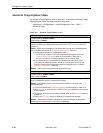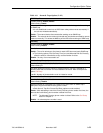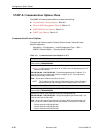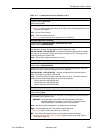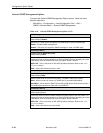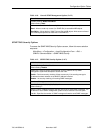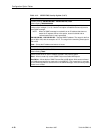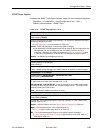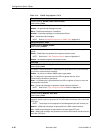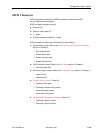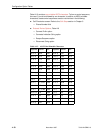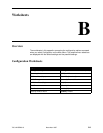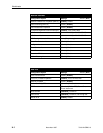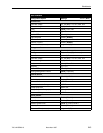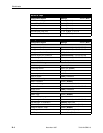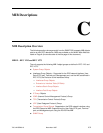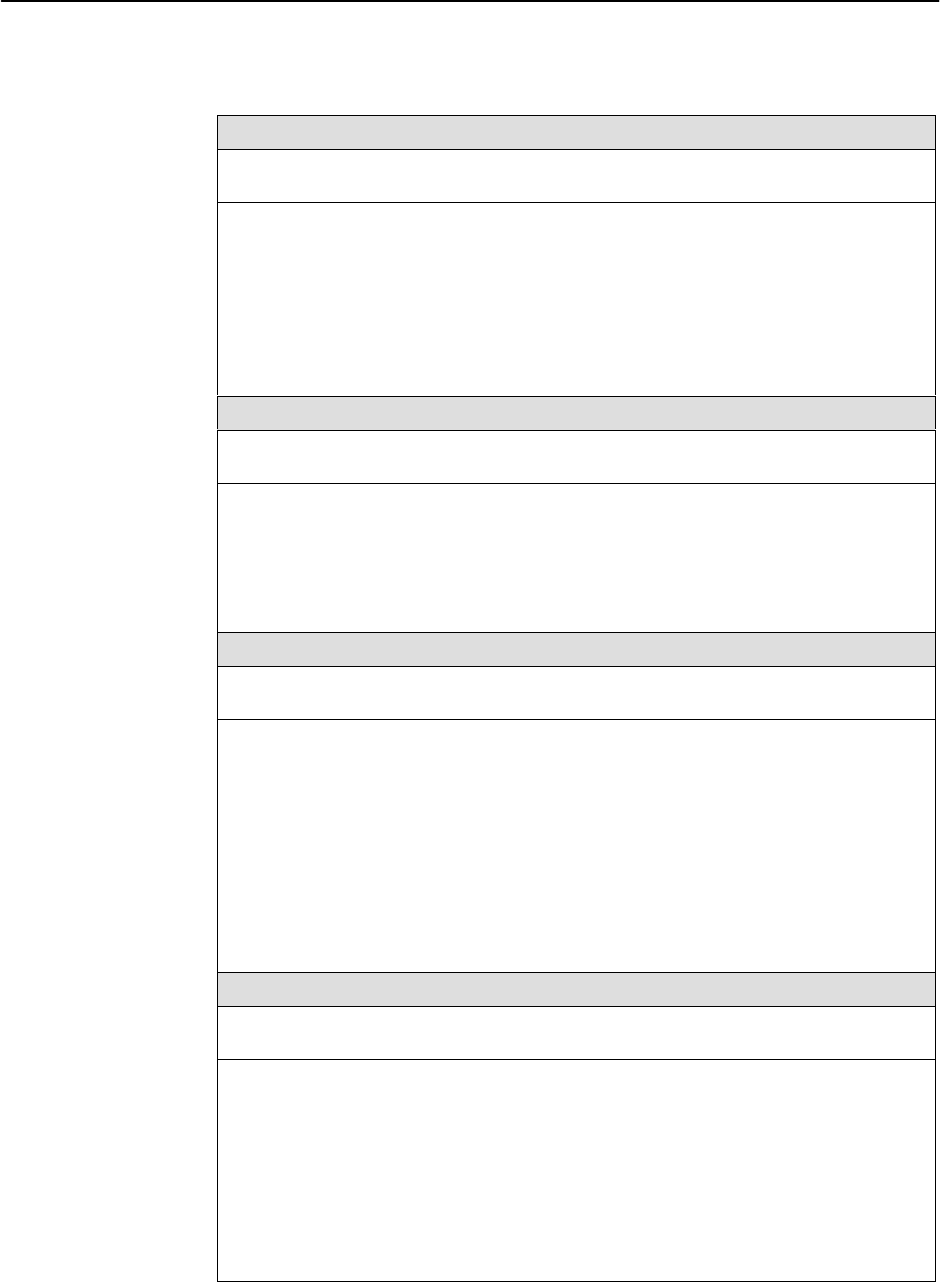
Configuration Option Tables
A-28
7610-A2-GB20-10November 1997
Table A-12. SNMP Traps Options (2 of 2)
General Traps
Possible Settings: Disable, Warm, AuthFail, Both
Default Setting: Both
Determines which SNMP traps are sent to each trap manager.
Disable – No general trap messages are sent.
Warm – Sends trap message for “
warmStart”
.
AuthFail – Sends trap message for “
authenticationFailure
”.
Both – Sends both trap messages.
NOTE: Refer to
Standards Compliance for SNMP Traps
, Appendix D.
Enterprise Specific Traps
Possible Settings: Enable, Disable
Default Setting: Disable
This option is used to determine if SNMP traps are generated for enterprise-specific
events.
Enable – SNMP traps are generated for enterprise-specific events.
NOTE: Refer to the
Traps: Enterprise Specific
section of Appendix D.
Disable – No enterprise-specific event traps are sent.
Link Traps
Possible Settings: Disable, Up, Down, Both
Default Setting: Both
This option is used to determine if SNMP traps are generated for link up and link down
for one of the communication interfaces.
Disable – No linkUp or linkDown SNMP traps are generated.
Up – A linkUp trap is generated when the DSU recognizes that one of the
communication interfaces is operational.
Down – A linkDown trap is generated when the DSU recognizes a failure in one of the
communication interfaces.
Both – Sends trap messages for detection of both linkUp and linkDown.
NOTE: Refer to the
Traps: linkUp and linkDown
section of Appendix D.
Link Trap Interfaces
Possible Settings: Network, Port, Both
Default Setting: Both
This option determines if the SNMP linkUp, SNMP linkDown, and interface-related
enterprise-specific traps are generated for the DDS Network Interface and/or User Data
(DTE) port.
NOTE: These traps are not supported on the Management port and Terminal port.
Network – SNMP trap messages are generated for the DDS network interface.
Port – SNMP trap messages are generated for the User Data (DTE) port.
Both – SNMP trap messages are generated on both the DDS network interface and the
User Date (DTE) port.



